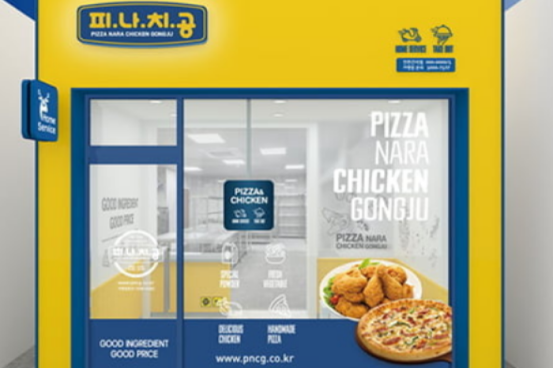
Korean food is making global waves, but back home, the story is different for food and beverage franchise operators. Franchisors in South Korea are facing tepid consumer demand and investor apathy, weighed down by sluggish domestic spending and tightening regulations.
According to investment banking sources on Tuesday, a growing number of once-popular F&B franchise chains are struggling to attract buyers in the country, Asia’s fourth-largest economy.
Rich Beam Co., the operator of the Pizza Nara Chicken Gongju chain, has been seeking a buyer since late last year and has recently tapped multiple private equity firms without appointing a lead deal manager.
Last September, the Korean franchisor entered talks with Seoul-based SG Private Equity to hand over its management control, but the deal fell through at the final stage.
Despite Rich Beam’s renewed efforts to pursue a sale, investor sentiment toward the F&B sector remains weak, prompting skepticism about a successful transaction.
Many of Korea’s first-generation franchise brands, once dominant players in the 1990s and 2000s, are facing similar challenges.

In 2021, Affinity Equity Partners put its entire 100% stake in Burger King Korea up for sale, aiming for a valuation of around 700 billion won ($508 million).
But its sale attempt never materialized, delaying the Hong Kong-based investment firm’s exit from the US burger chain’s Korean operations.
Singapore-headquartered Orchestra Private Equity has also embarked on the process to offload the Korean operations of fast-food chain KFC, which it acquired from KG Group in 2023.
Money-losing Pizza Hut Korea Ltd., the Korean master franchisee of the giant US pizza franchisor, has been seeking a buyer through a stalking-horse bid since it filed for court-led restructuring in Seoul last year.
The decline of these F&B brands stems from shifting consumer dining habits and spending patterns in recent years.
Korean households are eating out less amid rising restaurant prices and have a broader range of delivery options beyond traditional pizza and fried chicken.
GOING GLOBAL FOR EXIT OPTIONS

Some franchisors have turned overseas to tap into the global appetite for Korean cuisine.
Jollibee Foods Corp., a household name in Southeast Asia’s food market, has acquired Norang Tongdak, a Korean fried chicken brand, in a deal estimated at 140 billion won.
Gopizza Inc., a Korean food tech startup offering personal-sized pizzas, is also pursuing foreign investment for its next funding round.
The company is betting on growth in India, where its K-food-inspired pizzas have gained popularity, for a turnaround.
However, some analysts warn against relying too heavily on the global K-food boom, saying that it can’t last forever.
“Going global is one of the options, but it requires caution given that the F&B sector is highly trend-sensitive,” said an official from the local IB industry.

REGULATORY RISK CLOUDS STRATEGIC DEALS
At home, looming regulatory reforms are further dampening the appetite of strategic investors, such as major conglomerates, for F&B deals.
Korea’s ruling Democratic Party has proposed a bill requiring franchisors to share costs with franchisees and limit their operational control. The opposition People Power Party has introduced similar legislation.
Both aim to raise entry barriers to the F&B franchise market and strengthen protections for franchisees.
“Once a business grows to a certain scale, investors typically look to exit by selling to a strategic buyer such as a conglomerate,” said an official at a private equity firm.
“But with tightening regulations and shrinking dining-out demand, large corporations are turning more hesitant to step in.”
By Da Eun Choi
max@hankyung.com
Sookyung Seo edited this article.















